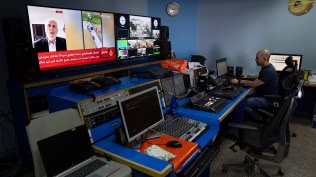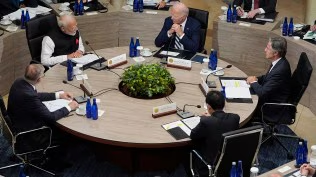Reza Seraj, former foreign intelligence chief of Iran's Revolutionary Guard Corps (IRGC), died on September 21 after undergoing surgery for a brain tumour. Seraj played a critical role in Iran's overseas assassination plots and was designated by the US Treasury Department for human rights abuses.
#BREAKING The IRGC-Intelligence Organization's former Foreign Intelligence chief Reza Seraj has died of "brain tumor", according to Iranian state media.
— Iran International English (@IranIntl_En) September 21, 2024
The US-designated official previously led the IRGC-IO Special Operations Division "focused on special activity against Israel,… pic.twitter.com/PGyHVSOUdo
Reza Seraj was a key figure in orchestrating the IRGC's covert operations abroad. Last year, the US Treasury Department sanctioned him for his involvement in overseas assassination attempts and numerous human rights violations in Iran.
His career within Iran's intelligence apparatus spanned decades, beginning in the 1990s when he operated as a senior interrogator under the alias "Alavi," notorious for extracting forced confessions from political and student activists through torture.
Among his controversial actions was his leadership of the IRGC's Special Intelligence Directorate, Unit 4000, where his role in an uncovered plot to assassinate an Israeli in Cyprus eventually led to his removal. Javad Ghaffari, a figure once expelled from Syria, took over the unit following Seraj's dismissal.
Throughout his career, Seraj earned a reputation for his brutal interrogation tactics, which impacted numerous activists, including political figure Ali Afshari. In a recent interview, Afshari described Seraj as the lead interrogator responsible for his suffering during his 2000 arrest.
Ahmad Batebi, a journalist, also pointed to Seraj's role in his own mistreatment, detailing the torture he endured that resulted in false confessions aired on state television.
Reza Seraj's influence extended beyond Iran's intelligence community. He served as head of the Student Basij, where he was instrumental in the suppression of student protests in 2009, and later appeared frequently in state media as an "academic and analyst." His involvement in these protests and his broader work for the regime made him a target for human rights organisations.
In his later years, Seraj held key roles within the Supreme National Security Council, serving as a spokesperson and communications deputy. Despite his varied titles and public appearances, his legacy remains tainted by his human rights abuses, with many viewing him as a key figure in Iran's repressive apparatus.
Reza Seraj was linked to numerous violent incidents, including the attack on political prisoners in Evin Prison in 2014, known as "Black Thursday." He was also responsible for increasing the sentence of Gholamreza Khosravi Savadjani, a political prisoner, from three years to execution. Khosravi was hanged in June 2014, less than two months after the attack.
Disclaimer: The copyright of this article belongs to the original author. Reposting this article is solely for the purpose of information dissemination and does not constitute any investment advice. If there is any infringement, please contact us immediately. We will make corrections or deletions as necessary. Thank you.







